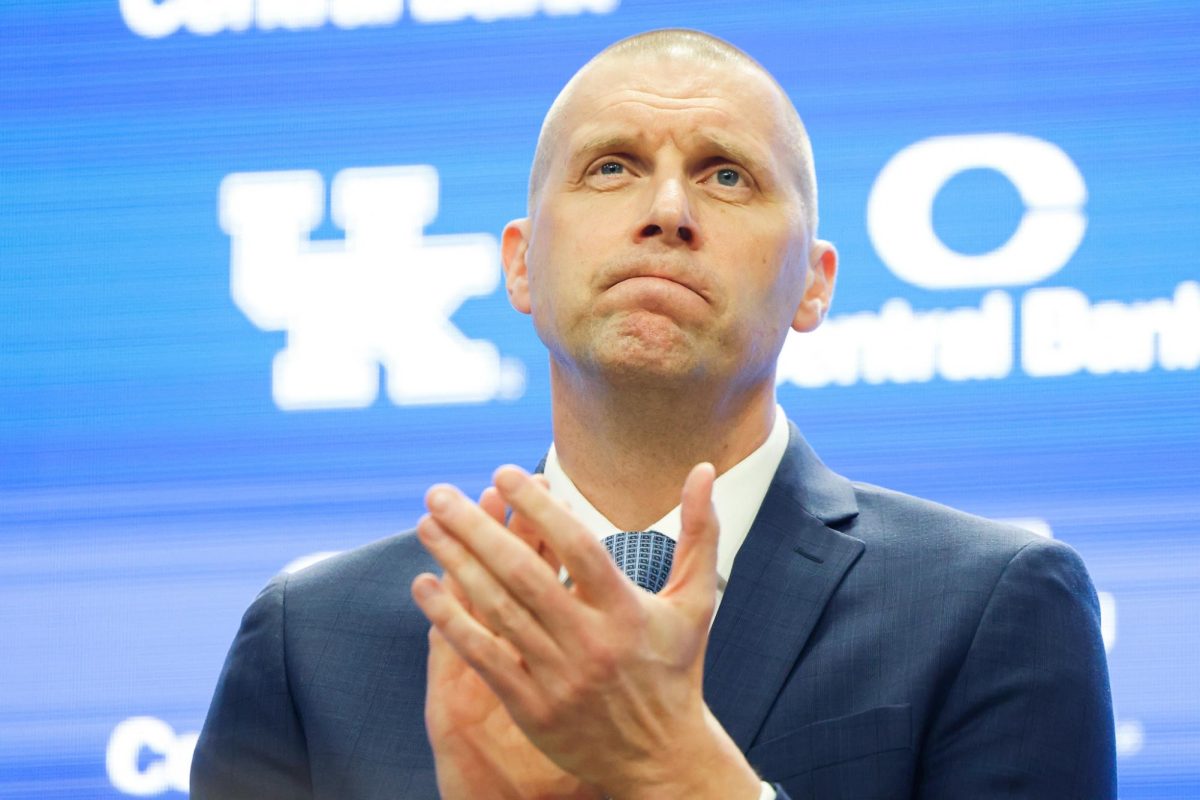‘The Grand Budapest Hotel’ lacks storytelling, director continues his predictable style
April 4, 2014
By Kyle Arensdorf
When Wes Anderson released his eighth feature film, “The Grand Budapest Hotel,” his legion of fans crawled from the woodwork to anoint his unmatched whimsical talent.
However, “Budapest” is simply another showcase of Anderson’s unwillingness to break from the traditional boxed-in worlds in which his films exist. Of course, in using his shoddily-drawn tableaux to set up scenes instead of a long shot that is used in most films, he leaves himself little room to branch out into anything truly significant.
This film tells the story of a concierge of the Grand Budapest Hotel, M. Gustave (Ralph Fiennes), in 1938. The story, being recounted in the late ‘60s, is told through the lens and narration of its secondary protagonist, Mr. Moustafa (F. Murray Abraham).
When one of his many mistresses is murdered, Gustave is bequeathed a valuable painting called “Boy with Apple.” This sparks outrage among the crowd of blood-thirsty relatives anxious to reap the benefits of the wealthy dame’s will.
One relative, Dmitri (Adrien Brody), even hires muscle (Willem Dafoe) to track down and murder Gustave and reclaim the painting.
What ensues is a grab bag of Anderson’s routine silly tricks and dizzying camera movements that his admirers call whimsical charm, and that his detractors call a jackleg interpretation of directing.
Characters need time to breathe within a scene if you hope to generate any type real emotion at all. When you don’t allow them that time, you’re left with a slightly amusing film filled with empty characters.
Despite the overly impulsive directing style, the bigger shames of this film are its sloppy progression and neglect of any important female characters, a characteristic of almost every one of his films. One example of this sloppy progression is when Gustave meets his lobby boy Zero, (a young Mr. Moustafa played by Tony Revolori) he trusts him wholly within two scenes, completely out of character for the very particular and hypercritical concierge.
When Zero meets the non-character that is Agatha (Saoirse Ronan), the story moves at an alarming pace. This can be attributed to the style in which the story is being told, but it ultimately works to diminish the integrity and the audience’s perception of the “serious” relationship.
This film, like all of Anderson’s films, is an amusing portrait of “Wes World,” where you can count on seeing everything but narrative drive and a skill for storytelling.




























































































































































